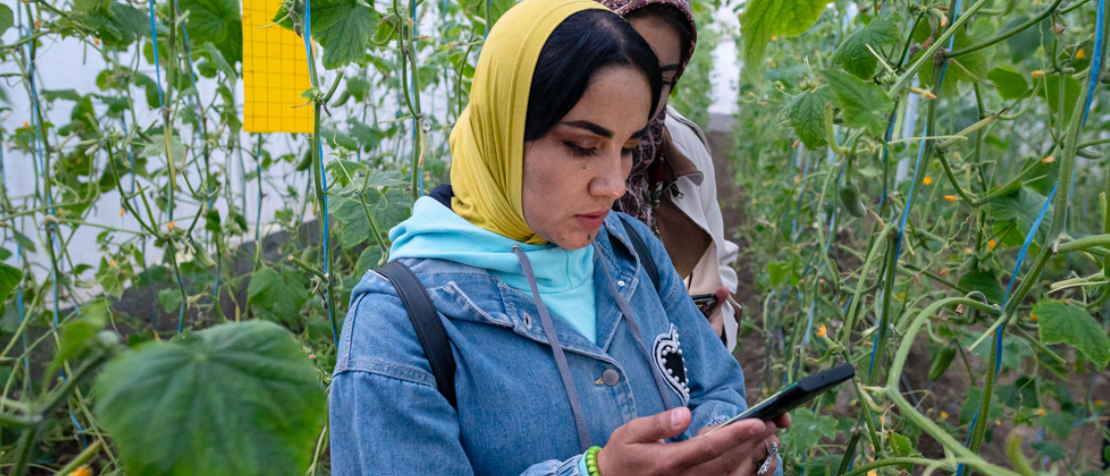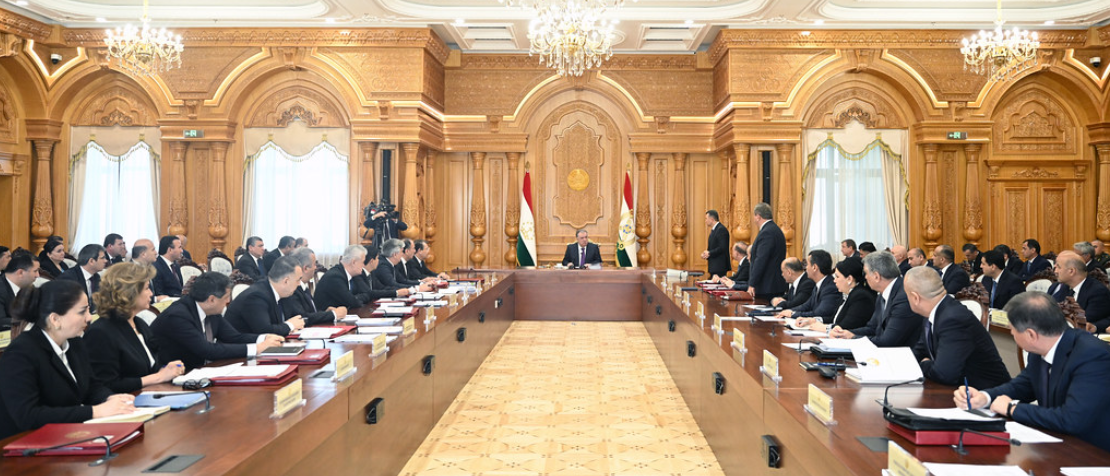Tajikistan adopts programme for the digitalization of the agricultural sector with FAO support

©FAO/Daniil Dolidze
The Government of the Republic of Tajikistan has officially adopted its Programme for the digitalization of the agricultural sector for 2025–2030, marking a major milestone in the country’s digital transformation efforts. The programme, developed with technical support from the Food and Agriculture Organization of the United Nations (FAO) under the “Provision of Technical Assistance on E-agriculture to the Ministry of Agriculture” technical cooperation project, outlines a strategic roadmap to harness digital technologies for more efficient, inclusive, and climate-resilient agriculture.
The programme was approved at a high-level government meeting chaired by Emomali Rahmon, President of the Republic of Tajikistan, on 29 May 2025. The programme is grounded in the country’s national agriculture development priorities and aligned with other key national policies. It adopts a comprehensive, systems-based approach to transform Tajikistan’s agrifood sector through digitalization, aiming to increase productivity, enhance food security, improve public service delivery, and build climate resilience.
“The approval of this programme reflects the Government’s strong political will in the further continuation of agrarian reform to accelerate the implementation of digital technologies in agriculture through digital tools and smart solutions. By introducing digital innovations, we will not only increase efficiency and transparency, but also provide new opportunities for farmers, rural communities and agribusiness. This national Programme is rooted in the priorities of the National Development Strategy of the Republic of Tajikistan, and we are committed to the comprehensive and effective implementation of this Programme in close cooperation with our partners,” emphasized Nigina Anvari, Deputy Minister of Agriculture of the Republic of Tajikistan.
FAO has provided extensive technical support in the formulation of the programme, working closely with the Ministry of Agriculture and national experts through a multi-stage process. This included a detailed assessment of the current state of digital agriculture in the country, multistakeholder co-design workshops to develop a shared national vision and articulate strategic outcomes and concrete actions, and validation exercises, which culminated in formal handover of the programme to the government.
“The official adoption of Tajikistan’s Digital Agriculture Programme marks an important moment in the country’s journey towards a smarter, more resilient and inclusive agrifood systems,” said Aghasi Harutyunyan, FAO Representative a.i. in Tajikistan. “FAO is proud to have supported the Government in crafting this forward-looking roadmap, which has the potential to empower farmers, strengthen food security and build climate resilience through innovative solutions. This milestone underscores the power of partnership, national ownership and our collective commitment to sustainable agricultural development.”
Structured around long-term development objectives, the programme focuses on building an enabling environment for innovation by investing in physical infrastructure, developing digital public services, expanding digital skills and literacy, and fostering a dynamic market ecosystem for digital agriculture solutions. Strategic priorities include improving access to weather and pest forecasts, increasing transparency and traceability, strengthening planning and data systems within the Ministry of Agriculture, and equipping producers with the knowledge and tools needed to participate in digitally enabled value chains.
The adoption of this programme comes at a time of increasing global interest in digital agriculture as a means to accelerate sustainable development of agrifood systems. Tajikistan’s efforts contribute to FAO’s vision of promoting “inclusive, resilient and sustainable agrifood systems,” as well as the broader digitalization agenda under the FAO Strategic Framework 2022–31.
The Digital Agriculture Programme will be implemented in phases, with annual monitoring planned to ensure adaptive management and policy learning. FAO remains committed to supporting the next steps, including resource mobilization, support in the development of e-government systems, capacity development, and piloting digital tools at scale.

©President of the Republic of Tajikistan
